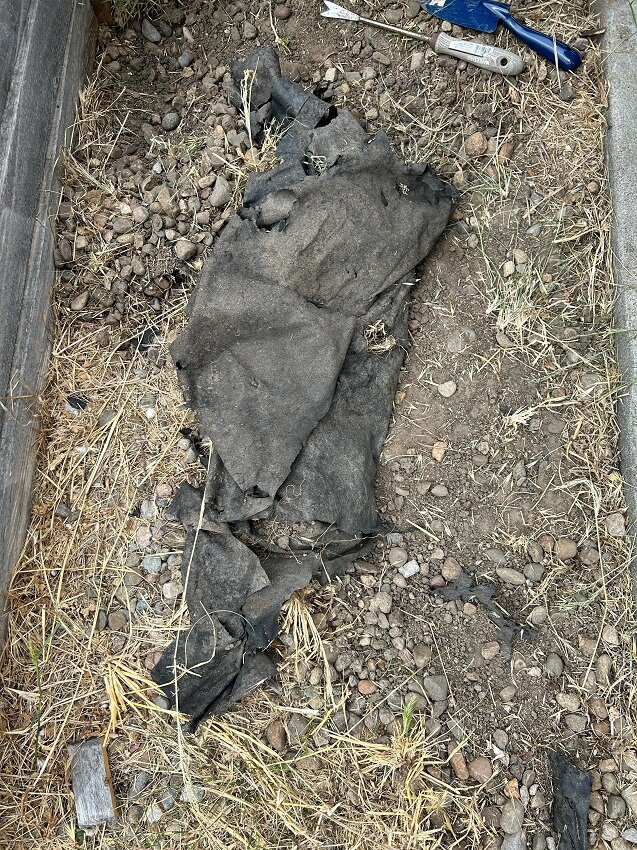One new homeowner recently encountered an all-too-familiar problem that they inherited from the previous owner: the dreaded landscape fabric.
"I want to put garden beds in my yard, but the previous homeowner put … landscape fabric buried under 6" of rocks … do I just ignore or remove?" the poster wrote, asking the r/landscaping subreddit for help.


Unfortunately, the advice did not trend toward ignoring the landscape fabric.
"Pull out as much as you can and just remove it as you find it. That stuff sucks," one commenter wrote.
"Your only option is to remove the rock," another commenter said. "It's an awful job but that [is] what [needs] to be done. If you're able to spend a little money in your efforts look into hiring someone with some equipment."
This homeowner is far from the first to grow frustrated while attempting to deal with landscape fabric, which is commonly made of plastic and does not actually prevent weed growth as advertised. While it can help to prevent erosion, the downsides of the material far outweigh the benefits.
That's why experts and basically anyone who has ever come into contact with it recommend avoiding landscape fabric entirely. When you buy a new home, however, you might not have the choice of avoiding landscape fabric — and you may be forced to reckon with the previous owner's mistakes.
Beyond all the problems with it not working as desired, the plastic is also bad for the environment and disintegrates into microplastics. Furthermore, the manufacturing to create it and the shipping to get it to you represent wasted resources and pollution for something that may help for a year or two tops.
Ultimately, the original poster decided that they would just have to shell out more money on top of whatever they paid for the house to eradicate the problem.
"I have no idea how long some of this has been there. It really is like a good 5-6 inch deep … it's nuts," they wrote. "Seems like you need to remove and replace fabric every couple years otherwise it's impossible to deal with. Sounds like I need to hire someone to deal with this problem for me."
Join our free newsletter for easy tips to save more, waste less, and help yourself while helping the planet.









